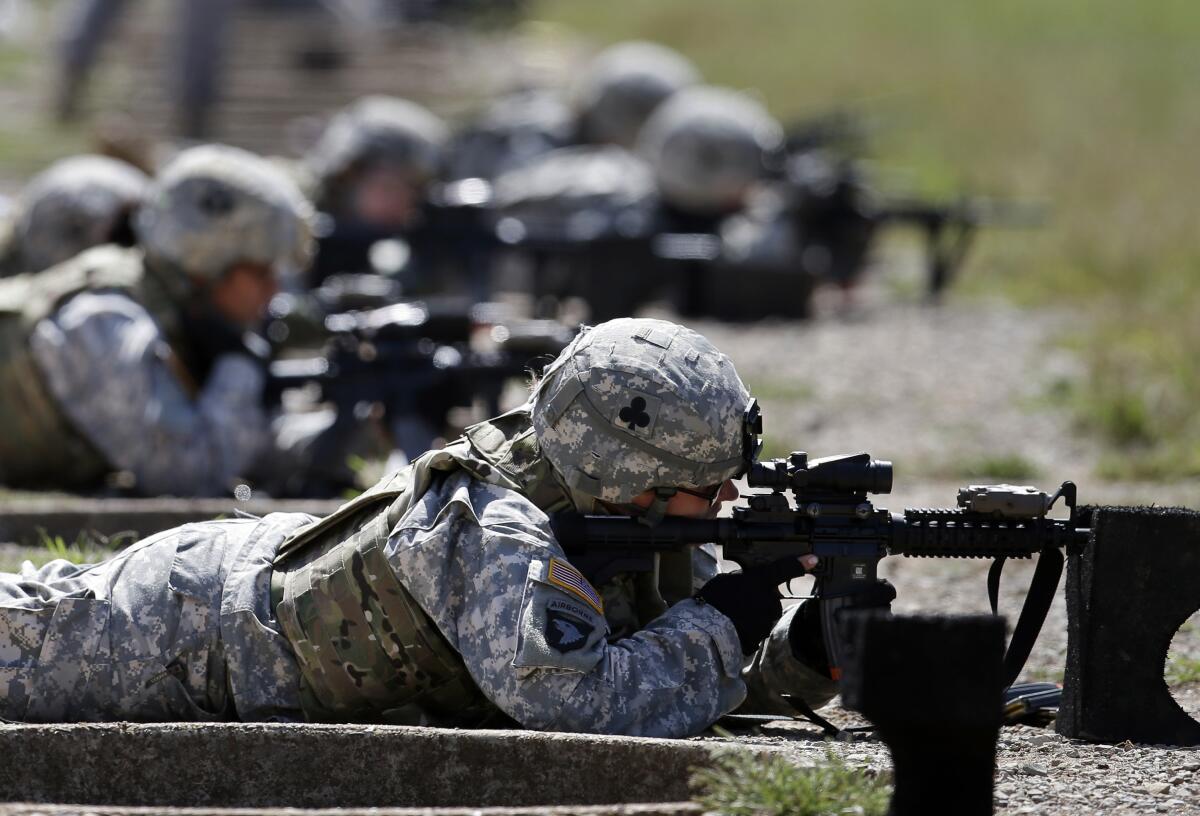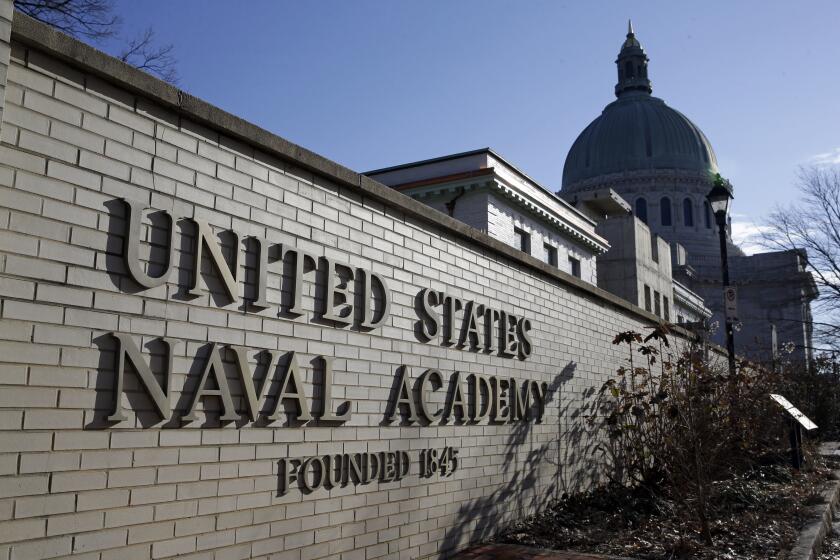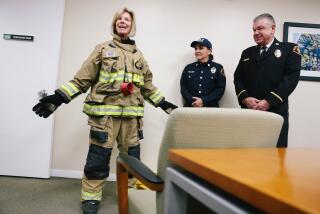Women in Army special ops face rampant sexism and harassment, military reports

WASHINGTON — Female soldiers face rampant sexism, harassment and other gender-related challenges in male dominated Army special operations units, according to a report Monday, eight years after the Pentagon opened all combat jobs to women.
U.S. Army Special Operations Command, in a lengthy study, reported a wide range of “overtly sexist” comments from male soldiers, including a broad aversion to females serving in commando units. The comments, it said, are “not outliers” but represent a common sentiment that women don’t belong on special operations teams.
“The idea that women are equally as physically, mentally and emotionally capable to perform majority of jobs is quite frankly ridiculous,” said one male commenter. Others said they’d quit before serving on a team with a female, and that serving in such a situation it would create problems and jealousy among their wives.
The blunt and sometimes crass comments ring familiar to many who have watched the difficult transition as women moved into the military’s front line combat jobs. And they paint a disturbing, challenging picture for leaders.
Military: Statistics and soldiers both tell tales of a culture where the potential for problems is high.
“Although disappointed by some of the findings and comments in the study, we are committed to addressing these issues with candor and transparency,” said Lt. Gen. Jonathan Braga, USASOC commander.
The responses in the new report echo sharp opposition voiced by special operations troops across the services in 2015, when surveyed on whether women should serve in the dangerous commando jobs. Later that year, in a landmark decision, then-Defense Secretary Ashton Carter ordered all combat jobs open to women.
That change followed three years of study and debate, and reflected a formal recognition that thousands of women had served — and many were wounded or killed — on battlefields in Iraq and Afghanistan. Since then, women have made significant strides throughout the military, gaining high level command posts, but the report underscores that significant biases remain.
Two years ago, Army special operations leaders ordered a study to identify and eliminate barriers to females serving in their force. USASOC is the first to do this type of study of its specialized force. It’s unclear if other services will do similar reviews.
The Army study focused on women serving in operational roles such as Green Berets, Ranger Regiment, aviation and psychological and civil affairs teams. The study and meetings, however, also included women in a wide array of support jobs such as engineers, mechanics, fuelers and communications and intelligence personnel who work with or sometimes accompany commandos on missions. The recommended changes are designed to benefit all females in the command.
1 in 7 asked by the VA said they had been harassed or assaulted.
The report, which is only now being released, identified a number of major issues, as female soldiers complained of sexism, isolation, poor-fitting and inadequate equipment, and lack of child care and healthcare, particularly involving pregnancy. They also expressed an overwhelming belief that they are passed over for jobs that are then given to less qualified men and that they have to do more and be perfect to get respect.
“I have to work hard to prove my excellence, while men have to work hard to prove their mediocrity,” one female soldier said.
Many male soldiers said female soldiers are respected and have the same chance for promotions as men. But the numbers dip when asked if woman have equal skills.
One male soldier dismissed any idea that women were pursuing career goals, saying women asking for special operations assignments “are looking for a husband, boyfriend or attention.” But there also were some who countered that men with negative opinions hadn’t worked with women, and that once they did they would realize their value.
All together there are roughly 2,200 female soldiers in USASOC — or nearly 8% of the 29,000 active-duty soldiers. There also are 427 female civilians. Of the 2,200, a bit more than 250 are in what would be considered operational jobs with the Green Berets, the 160th Special Operations Aviation Regiment, the Ranger Regiment and psychological and civil affairs teams.
Reported sexual assaults at the U.S. military academies shot up during the 2021-22 school year, according to U.S. officials.
Four women have passed the grueling course to become Green Berets, and several are serving in those jobs. Seven females are serving in the Ranger Regiment, which totals about 3,000 soldiers.
The report made 42 recommendations. Several involving increased training and messages to the force to expand awareness of sexual harassment, mentorship, healthcare and other issues, have been implemented. Other changes are in progress.
Overall, the report said that gender bias is “deeply embedded” in staffing and equipping the special operations force.
And, it reflected confusion. While there is solid agreement that standards cannot be lowered for females, many interpret that as prohibiting any gender-specific accommodations.
“Women may require different tools than men to perform the same task,” the report said. “A mentality change is necessary to modify the archaic attitude that supplying tools to female service members is an act of accommodation versus simply providing our warfighters with the right tools for the job.”
The highest-ranking woman in the U.S.
Key examples are body armor, helmets and rucksacks that are often too big for female soldiers and small-stature men. The Army has been struggling for years to address the body armor problems, and two years ago began distributing short and longer small-sized protective vests and combat shirts designed to better fit women.
The new report, however, said that USASOC has too few of those scalable vests, and efforts to address the helmets and rucksacks are ongoing.
Sexual harassment is a common, but complicated complaint.
While nearly every woman in focus groups said she had experienced sexual harassment, only 30% called it a challenge and very few were willing to report or publicly acknowledge it. According to the report, 25 sexual harassment complaints were filed by female special operations command soldiers between 2016 to 2020.
Women said they fear reprisal and don’t trust commanders to take action because of a “good ol’ boys club.” And female officers said they’re told to develop a “thick skin” so they can survive in a man’s world.
In contrast, male soldiers said that sexual harassment training has made them fear interaction with women because a joke or comment could end their careers.
More to Read
Sign up for Essential California
The most important California stories and recommendations in your inbox every morning.
You may occasionally receive promotional content from the Los Angeles Times.











